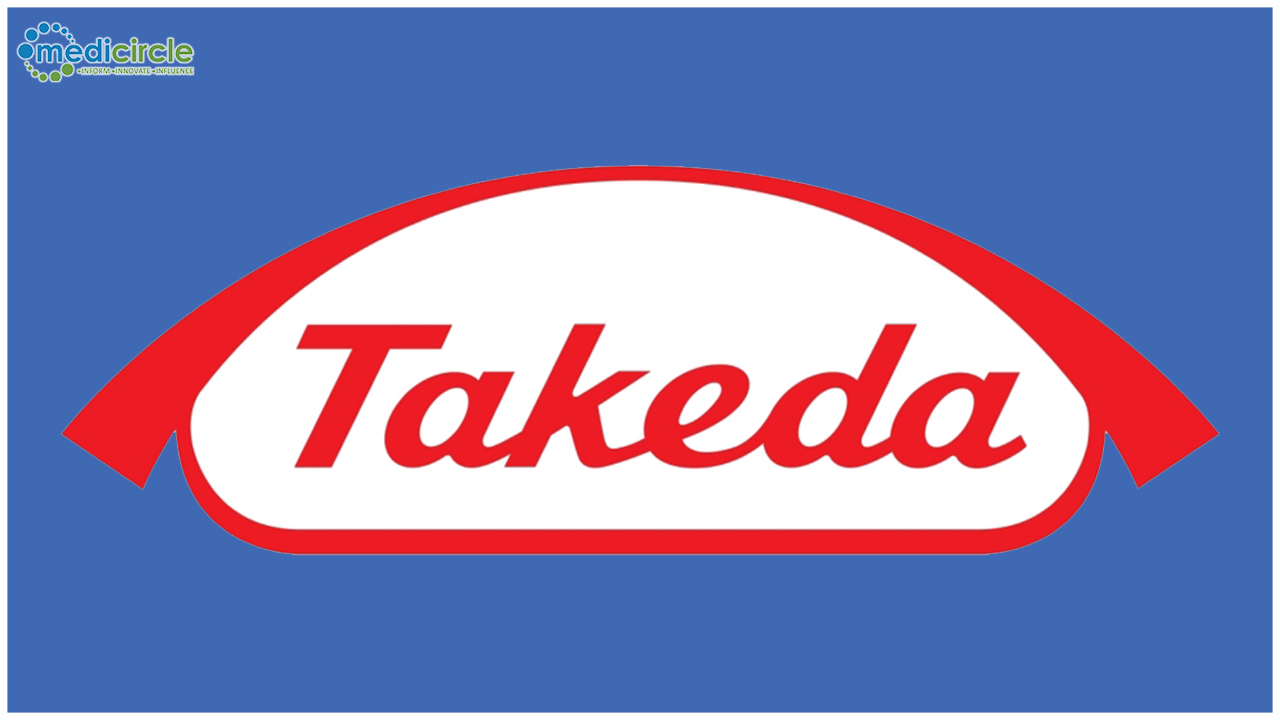Takeda Pharmaceutical Company Limited today will share with members of the United States Congress that it is initiating the development of an anti-SARS-CoV-2 polyclonal hyperimmune globulin (H-IG) to treat high-risk individuals with COVID-19, while also studying whether Takeda’s currently marketed and pipeline products may be effective treatments for infected patients. SARS-CoV-2 is the virus that causes COVID-19.
Hyperimmune globulins are plasma derived-therapies that have previously been shown to be effective in the treatment of severe acute viral respiratory infections and may be a treatment option for COVID-19. As a leader in plasma-derived therapies with more than 75 years of experience in the development of plasma-derived products, Takeda has the expertise to research, develop, and manufacture a potential anti-SARS-CoV-2 polyclonal H-IG, which Takeda is referring to as TAK-888.
“As a company dedicated to the health and well-being of people around the world, we will do all that we can to address the novel coronavirus threat,” said Dr. Rajeev Venkayya, President of Takeda’s Vaccine Business Unit and co-lead of the company’s COVID-19 response team. “We have identified relevant assets and capabilities across the company and are hopeful that we can expand the treatment options for patients with COVID-19 and the providers caring for them.”
Takeda is currently in discussions with multiple national health and regulatory agencies and health care partners in the US, Asia, and Europe to expeditiously move the research into TAK-888 forward. This requires access to source plasma from people who have successfully recovered from COVID-19 or who have been vaccinated, once a vaccine is developed. These convalescent donors have developed antibodies to the virus that could potentially mitigate severity of illness in COVID-19 patients and possibly prevent it.
H-IG works by concentrating the pathogen-specific antibodies from plasma collected from recovered patients or vaccinated donors in the future. By transferring the antibodies to a new patient, it may help that person’s immune system respond to the infection and increase their chance of recovery. Because the plasma needed for TAK-888 is unlikely to come from current plasma donors, Takeda will initially produce the therapy in a segregated area within its manufacturing facility in Georgia, and development and production of it should not negatively impact Takeda’s ability to produce its other plasma-derived therapies.
“Plasma-derived therapies are critical, life-saving medicines that thousands of people with rare and complex diseases rely on every day around the world,” said Dr. Chris Morabito, Takeda’s Head of Research and Development, Plasma-Derived Therapies Business Unit. “Our heritage, combined with our scale, expertise and capabilities, uniquely position Takeda to realize the potential of plasma-derived therapies, such as TAK-888.”
In addition, Takeda is exploring whether select marketed therapies and molecules in its drug library could be viable candidates for the effective treatment of COVID-19. These efforts are at an early stage but being given a high priority within the company.
An internal working group of in-house experts in public health, vaccines, plasma-derived therapies, and R&D will continue to seek opportunities to leverage our expertise and extensive network of global partners to address COVID-19. COVID-19 is the disease caused by severe acute respiratory syndrome coronavirus (SARS-CoV-2), which can cause pneumonia and has resulted in more than 3,000 deaths globally since its recent discovery. To date, there are no approved vaccines or therapies to prevent or treat COVID-19.
This requires access to source plasma from people who have successfully recovered from COVID-19 or who have been vaccinated, once a vaccine is developed. These convalescent donors have developed antibodies to the virus that could potentially mitigate severity of illness in COVID-19 patients and possibly prevent it.
H-IG works by concentrating the pathogen-specific antibodies from plasma collected from recovered patients or vaccinated donors in the future. By transferring the antibodies to a new patient, it may help that person’s immune system respond to the infection and increase their chance of recovery. Because the plasma needed for TAK-888 is unlikely to come from current plasma donors, Takeda will initially produce the therapy in a segregated area within its manufacturing facility in Georgia, and development and production of it should not negatively impact Takeda’s ability to produce its other plasma-derived therapies.
“Plasma-derived therapies are critical, life-saving medicines that thousands of people with rare and complex diseases rely on every day around the world,” said Dr. Chris Morabito, Takeda’s Head of Research and Development, Plasma-Derived Therapies Business Unit. “Our heritage, combined with our scale, expertise and capabilities, uniquely position Takeda to realize the potential of plasma-derived therapies, such as TAK-888.”
In addition, Takeda is exploring whether select marketed therapies and molecules in its drug library could be viable candidates for the effective treatment of COVID-19. These efforts are at an early stage but being given a high priority within the company.
An internal working group of in-house experts in public health, vaccines, plasma-derived therapies, and R&D will continue to seek opportunities to leverage our expertise and extensive network of global partners to address COVID-19. COVID-19 is the disease caused by severe acute respiratory syndrome coronavirus (SARS-CoV-2), which can cause pneumonia and has resulted in more than 3,000 deaths globally since its recent discovery. To date, there are no approved vaccines or therapies to prevent or treat COVID-19.

 Takeda is currently in discussions with multiple national health and regulatory agencies and health care partners in the US, Asia, and Europe to expeditiously move the research into TAK-888 forward
Takeda is currently in discussions with multiple national health and regulatory agencies and health care partners in the US, Asia, and Europe to expeditiously move the research into TAK-888 forward










.jpeg)

.jpeg)
.jpeg)

.jpeg)


.jpeg)



.jpeg)
.jpeg)
.jpeg)


.jpg)


.jpeg)
.jpeg)